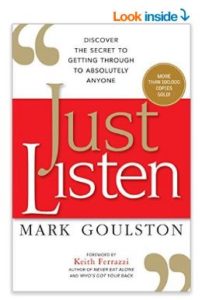Podcast: Play in new window | Download
Subscribe: RSS
“One must learn to give up momentary, uncertain and destructive pleasure for delayed, restrained, but dependable pleasure.” Sigmund Freud, Pain-Pleasure Principle 1922
When we’re faced with a decision, we often make choices based on previous experiences and how we link pain or pleasure too. In Tony Robbins’ book, Awaken the Giant Within, he states “if we link massive pain to any behaviour or emotional pattern, we will it avoid indulging in it at all costs. We can use this understanding to harness the force of pain and pleasure to change virtually anything in our lives.”
What is it that you would like to change in your life right now?
Every decision you make is based on whether or not you believe that you are going to experience pain or pleasure. Many people make decisions based on the pleasure or instant gratification they will get rather than the long-term consequences of their decisions. When faced with making a decision, one of the most common techniques to make that decision is to make a list of all the positive outcomes and then another list of the negative outcomes. Pay attention to what you focus on. Is it positive or negative? Don’t let fear hold you back from living a bigger life.
Are you letting your imagination run wild with all the “what if” scenarios playing around in your head?
Is the pain real or imagined?
Remember what you believe and focus your attention on, you will find evidence you need to support it.
What is the payoff of not taking the actions that you know you need to take? What is the real reason that you continue to take the same actions and get the same results?
If you’re not getting the results that you want, it’s time to take different actions. It all starts with recognizing whether or not you are linking pain or pleasure to the action you need to take. What emotions come up for you? Your emotions will drive you toward pain or pleasure. If you are happy, you will take positive actions that support your goals. If you are sad, you may take actions that pull you away from what you want to achieve. Every choice you make can lead you to experience pain or experience pleasure.
Look at the choices people make around you. Are they choosing things that cause them pain versus pleasure? When people feel pleasure, they want to sustain it and will take further action to maintain that feeling or reward.

What you perceive to be true is your reality based on your own life experiences. A simple example I think of is the fact that I do not drink coffee. Growing up on the farm, I remember taking meals out to the field and there would be a big thermos of coffee. The aroma was intoxicating but as I saw it poured into a mug I could only think of tar. I think of tar every time I see someone drinking coffee. I experience pleasure when I put on an outfit and I know that my workouts and mindful eating have paid off. Working out at the gym brings me pleasure because of the results I anticipate – a toned strong body and mind. Again, I can easily push aside desserts for the same reason. Other people may think of working out or skipping dessert as painful so they would rather make different choices.
The anticipation of what may or may not occur in the future may also drive your decision making. Are you making assumptions about what may happen? Do you know for sure?
Focus on what the pleasure and the long term gain are of a decision you make.
 What emotions are you experiencing?
What emotions are you experiencing?
When emotions are high, rational thinking goes out the window. Daniel Goleman, the Father of Emotional Intelligence refers to this as an “amygdala hijack” – a part of the brain that loses all reason in times of emotional distress.
You need to leverage your emotions and start linking your feelings to what you want to achieve. Look for inconsistencies and ensure your actions are aligned with what you say you want to happen. Imagine what your life would be like if you took the actions necessary to achieve your goals. Magic would happen!
What is really holding you back from taking the actions you know you need to take?
If you want to lose weight, why aren’t you avoiding sugary foods and soft drinks?
If you want to be financially free, why do you spend money you don’t have?
If you want to have better use of your time, why do spend hours surfing the internet or watching television?
Start associating pain with some of the behaviours you want to change. There is a power of association like coffee and tar. I have heard others like, “Kissing a smoker is like kissing an ashtray.” What would happen if you associated the pleasure of saving money so you could go on that trip you dreamed about or bought that house you have been eyeing. Create your own associations to help make powerful changes in your life.
How will you leverage pain or pleasure to get you desire outcomes?
We would love to have you subscribed to the Success Secrets newsletter on my website at www.debrakasowski.com where you’re going to get us free MP3 download 10 Surefire Strategies to Power Up Your Productivity and Performance. I would love to hear about this podcast has impacted your life. E-mail me at Debra@DebraKasowski.com. Thank you for listening to The Millionaire Woman Show where we talk about leadership, business, and human potential to help you live rich from the inside out. Subscribe to The Millionaire Woman Show. Share it with Your Friends. Give us a 5-star rating!
DEBRA KASOWSKI, BScN CEC is an award-winning best-selling author, transformational speaker, blogger, and Certified Executive Coach. She has a heart of a teacher and is certified in Appreciative Inquiry and Emotional Intelligence. Her writing has been published in a variety of print and online magazines. Debra Kasowski International helps executives, entrepreneurs, and organizations boost their productivity, performance, and profits. It all starts with people and passion. Sign up the Success Secrets Newsletter and get your free mp3 download today! www.debrakasowski.com
Time: 09:19 min
Keywords: taking control, pain versus pleasure, pain principle, pleasure principle, emotions, control emotions, what is pleasure, what is pain, Tony Robbins, Daniel Goleman, leverage your emotions, Sigmund Freud, what is holding you back, self-sabotage
